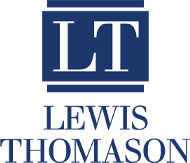By Justin Joy
In its recent opinion in Youree v. Recovery House of East Tennessee LLC, the Tennessee Supreme Court addressed the doctrine of piercing the corporate veil.[1] The opinion did not establish new law in Tennessee, but rather clarified how long-standing principles should be applied when a plaintiff seeks to disregard the corporate form to impose liability on corporate entity owners.[2]
The court restated numerous well-established principles in the context of corporate separateness. In doing so, the court noted the sometimes reviled (by creditors) but nonetheless long-held principle that “it is perfectly acceptable ‘to incorporate for the express purpose of limiting the liability of the corporation’s owners.’” The court also noted that the liability protection afforded by the corporate form is not absolute. The equitable doctrine of piercing the corporate veil attempts to balance the benefits of limited liability against its costs.
Turning to an examination of the principle of corporate veil piercing in Tennessee, the court initially noted that, “There is a broad consensus that the doctrine of piercing the corporate veil is ‘among the most confusing in corporate law.’” The court stated:
The resolution of cases involving piercing the corporate veil has been susceptible to the use of rhetorical devices and picturesque terms that often serve as a shorthand for a conclusion without adequate discussion about how the conclusion was reached. Indeed, the doctrine long ago was described as “enveloped in the mists of metaphor” by then-Judge Cardozo. The passage of time since then-Judge Cardozo expressed that sentiment has not been particularly kind to the explication of the doctrine of piercing the corporate veil. Regrettably, the treatment of the doctrine in Tennessee has exhibited confusion over the years. (citations omitted)
In its stated effort “to be more precise in this opinion,” the court revisited its opinion from nearly 50 years ago in Continental Bankers Life Insurance Co. of the South v. Bank of Alamo, 578 S.W.2d 625 (Tenn. 1979), which set forth the three elements required to be proven in order to pierce the corporate veil in Tennessee:
(1) The parent corporation, at the time of the transaction complained of, exercises complete dominion over its subsidiary, not only of finances, but of policy and business practice in respect to the transaction under attack, so that the corporate entity, as to that transaction, had no separate mind, will, or existence of its own.
(2) Such control must have been used to commit fraud or wrong, to perpetuate the violation of a statutory or other positive legal duty, or a dishonest and unjust act in contravention of a third parties’ rights.
(3) The aforesaid control and breach of duty must proximately cause the injury or unjust loss complained of.
The court noted that the standard upon which the elements stated in Continental Bankers are based was established as early as 1931. The court also addressed the frequently cited 1984 Eastern District of Tennessee case of Federal Deposit Insurance Corp. v. Allen, 584 F. Supp. 386 (E.D. Tenn. 1984), noting that in “the ensuing years, as this case demonstrates, confusion has developed over the interplay between the Continental Bankers elements and the Allen factors.”
After acknowledging that the court’s “own opinions have not resolved the confusion,” the court stated, “[t]his appeal gives us an opportunity to resolve some of the confusion.” In resolving the confusion present in the underlying case, the court stated succinctly: “[T]he Continental Bankers elements provide the standard for piercing the corporate veil. [3] The “factors” enumerated in Allen are not a separate test. However, the 11 circumstances stated in Allen provide a non-exclusive list of circumstances which “may be used in determining whether the three required elements from Continental Bankers have been established. [N]ot every such circumstance need be present to establish the three elements, nor will any single circumstance be conclusive. Rather, establishing any of the elements likely will depend on a combination of circumstances.”
In concluding its analysis, the court cautioning that “checking items off a list is not a substitute for a purposive analysis of whether the Continental Bankers elements have been established.” In every instance, the circumstances must demonstrate all three elements of control, wrongdoing, and causation in order for the corporate form to be disregarded.
In bringing clarity to this issue, the Tennessee Supreme Court has effectively strengthened the axiomatic separateness between corporate entities and their owners, whether the owners are natural persons or other legal entities. Even when a corporate entity has no “separate mind, will or existence of its own” as to the transaction at issue, a party attempting to disregard the corporate form must prove that the improper control was used to commit a fraud or wrong which was the proximate cause of the injury or unjust loss complained of.
1] While beyond the focus of this article, a significant portion of the opinion analyzed the issue whether the trial court properly entered a default judgment and, relatedly, properly denied a later motion to vacate that judgment. The Tennessee Supreme Court held that a trial court should not grant a default judgment simply because a party has not timely responded. While this should not be taken as an open invitation to unreasonably delay in responding to a lawsuit, the court stated that “our trial courts have an independent obligation, in exercising their discretion to enter a default judgment, to ensure that the admitted factual allegations are legally sufficient to establish a valid claim against the defaulting party.”
[2] In case there was ever a question whether corporate veil piercing principles applied equally to corporations as limited liability companies in Tennessee, that issue has been conclusively addressed with this opinion. [3] There was some discussion about whether the Allen test applied when attempting to pierce the corporate veil between a parent corporation and its subsidiary. Continental Bankers applies in any context when piercing the corporate veil is at issue, whether that is a parent-subsidiary or a corporation-shareholder relationship.In the April 17th Issue of TBA Connect – Business Law Section





